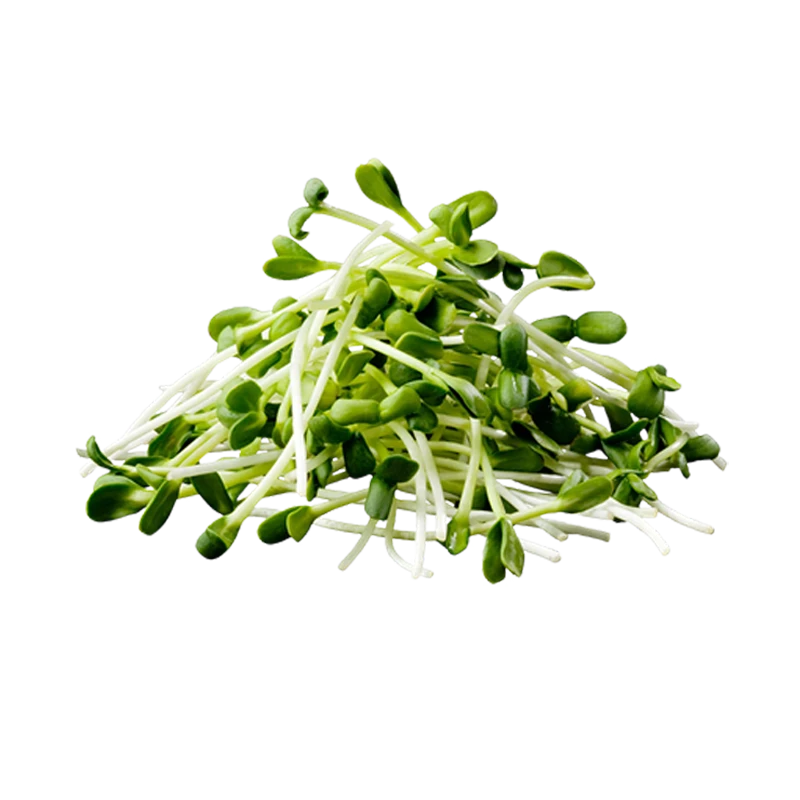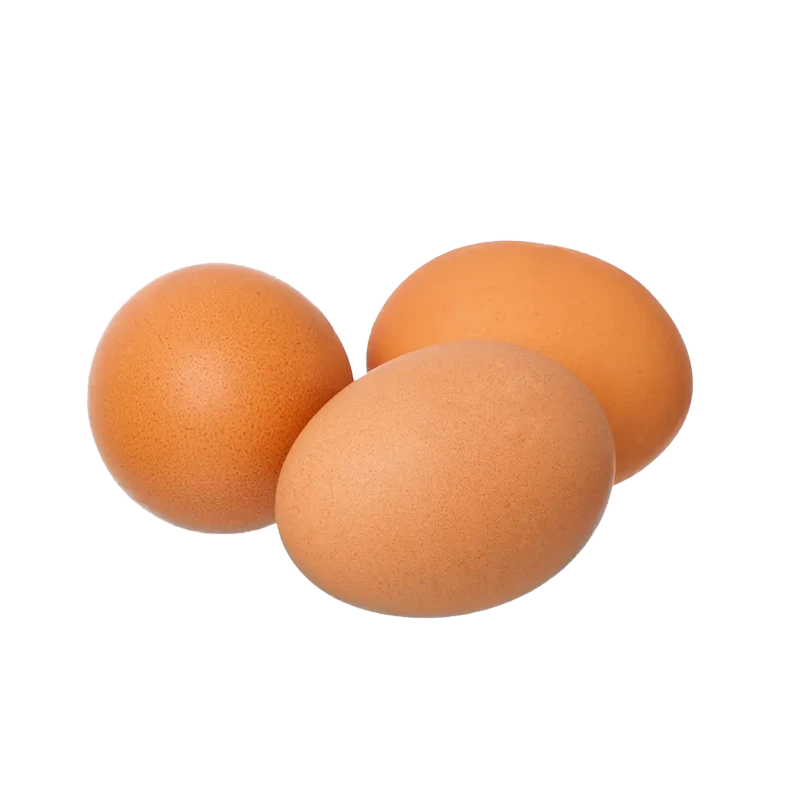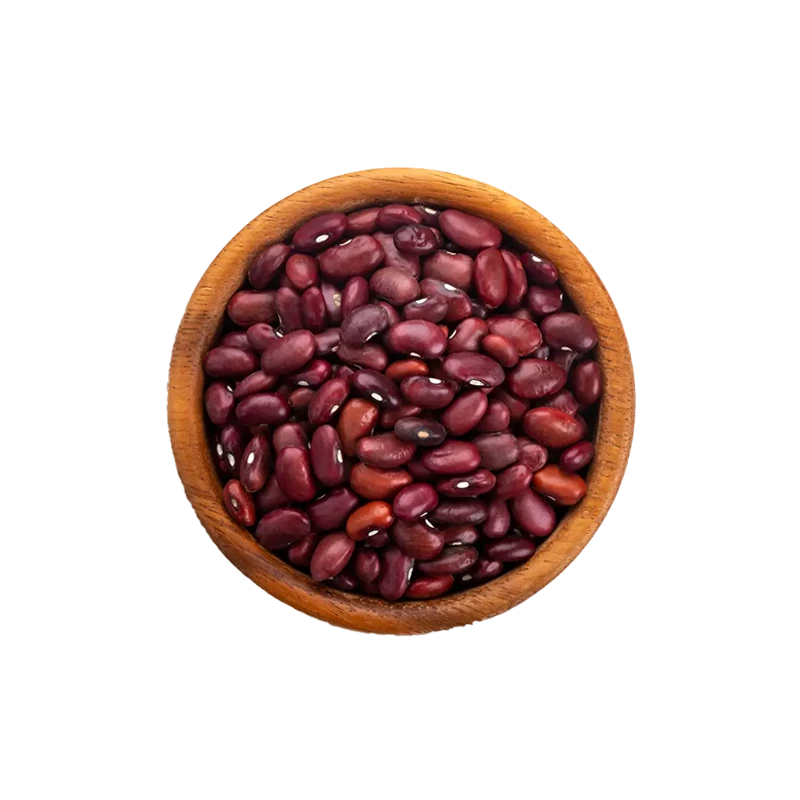Sprouts — Nutrients, Health Benefits, and Shopping Tips

Written by Listonic Team
Last update on September 4, 2024
Sprouts nutrients
Nutrition facts
Amount per 100 g
Calories
🔥 43 kcal
| Nutrition per: 100 g | Value | % Daily Value* |
|---|---|---|
| Carbs | 6 g | 2.18% |
| Fiber | 2 g | 7.14% |
| Sugars | 4 g | 8% |
| Glycemic Index | 25 | - |
| Protein | 5 g | 10% |
| Sodium | 6 mg | 0.26% |
| Total Fat | 1 g | 1.28% |
*The % of Daily Value (DV) tells you how much a nutrient in a serving of food contributes to a daily diet. 2,000 calories a day is used for general nutrition advice.
25
🟢 Low Glycemic Index
1 g
🥕 Low Fat Content
Sprouts facts & tips
Health benefits
- Rich in vitamins and minerals such as Vitamin C, Vitamin K, folate, and iron, which support overall health and well-being.
- High in antioxidants, which help protect the body from free radicals and reduce the risk of chronic diseases.
- Supports digestive health due to their high fiber content, promoting regular bowel movements and a healthy gut microbiome.
- Contains enzymes that aid in digestion and nutrient absorption.
- Low in calories, making them a nutritious option for weight management.
Health risks
- Risk of contamination with harmful bacteria such as E. coli, Salmonella, or Listeria, particularly in raw or undercooked sprouts, which can lead to foodborne illness.
- Potential for digestive discomfort such as bloating, gas, or stomach cramps when consumed in large quantities, particularly in individuals sensitive to high-fiber foods.
- Risk of allergic reactions in some individuals, particularly those allergic to specific types of sprouts (e.g., alfalfa, bean), causing symptoms like itching, swelling, or difficulty breathing.
- Potential for goitrogenic effects in certain sprouts like broccoli or radish, which may interfere with thyroid function in sensitive individuals, especially when consumed in large quantities.
How to choose sprouts
Sprouts, whether bean, alfalfa, or another variety, should appear fresh and vibrant, with crisp, moist tendrils. The roots should be white and the sprouts should be free from any odor.
Avoid sprouts that are slimy or have a musty smell, as these are signs of spoilage. Sprouts that look wilted or discolored should also be avoided, as they will not provide the best taste or nutritional benefits.

How to store sprouts
Sprouts should be stored in the refrigerator, ideally in a perforated plastic bag. Refrigeration helps keep them fresh and crisp for up to a week. Keeping them dry and well-ventilated is essential for maintaining their quality.
Excess moisture can cause sprouts to spoil quickly. Avoid washing them before storage to prevent mold growth. Always check for any signs of slime or off smells before consuming, and ensure they are kept separate from raw meat to avoid cross-contamination.
✅ Extra Tip
How long do they last?
Sprouts can last for 5-7 days in the refrigerator when stored in a plastic bag or container. To maintain their freshness, keep them in the crisper drawer and away from excess moisture.
What to do with leftovers?
Leftover sprouts can be used in a variety of fresh and crunchy dishes. Add them to salads, sandwiches, or wraps for a nutritious boost, or mix them into a stir-fry with vegetables and your choice of protein. Sprouts are also great when used as a topping for grain bowls, soups, or tacos.
Use sprouts in a spring roll or sushi with fresh vegetables and a dipping sauce, or mix them into a smoothie with fruits and yogurt for added nutrition. If you have a lot of sprouts, consider adding them to a quiche or frittata with eggs, cheese, and herbs. Sprouts can also be blended into a pesto or dip with garlic, nuts, and Parmesan, or used as a garnish for curries, soups, or salads. For a quick snack, enjoy sprouts with a drizzle of olive oil, lemon juice, and a sprinkle of salt, or mix them into a trail mix with nuts and seeds.
👨⚕️️ Medical disclaimer
How sprouts support specific health conditions
Sprouts, such as alfalfa or bean sprouts, are rich in antioxidants and vitamins, promoting immune health and protecting against oxidative stress. They are also high in fiber, supporting digestive health, and their plant-based protein helps support muscle health. Sprouts’ low-calorie content and nutrient density make them a great addition to salads, sandwiches, and stir-fries, contributing to overall weight management.
Discover products from other categories
Listonic Team
Fact-checked
Our editorial team checked this article to make sure it was accurate at the time of publishing it.
Get the top-rated shopping list app on your phone!







